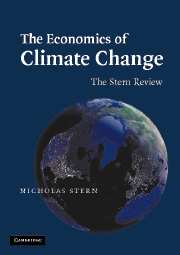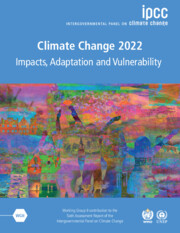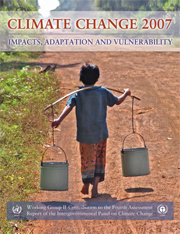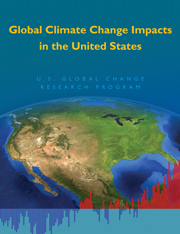Climate Variability, Climate Change and Social Vulnerability in the Semi-arid Tropics
Climate fluctuations can trigger events that lead to mass migration, hunger and famine. Rather than attributing the blame to nature, the contributors look at the underlying causes of social vulnerability, such as the processes and organisation of society in the semi-arid tropics. Past and present susceptibility to destitution, hunger, and famine in the face of climate variability can teach us about the potential future consequences of climate change. By understanding why individuals, households, nations, and regions are vulnerable, and how they have buffered themselves against climatic and environmental fluctuations, present and future vulnerability can be redressed. Through case studies from across the globe, the authors explore past experiences with climate variability, and the likely effects of, and the possible policy responses to, the types of climatic events that global warming might bring.
- The debate on climate change is pushed from one focused on 'impacts' towards one on the cause of 'vulnerability': it is through understanding the causes of vulnerability that policy responses can be best derived
- A historical look at responses to past climate variability, and from this an examination of the potential future consequences of and responses to climate change
- Focused on the semi-arid tropics, because of acute vulnerability, which derives from the clash between underdevelopment and environmental uncertainty
Reviews & endorsements
"This book does an excellent job focusing attention on the semiarid tropics....This book addresses a wide audience." Michael J. Hayes, The Bulletin of The American Meteorological Society
"...the reader will learn a lot about SETI...by the end of the book...a good book for anyone looking for a serious overview of SETI." SpaceViews
"Extraterrestrial Intelligence is a primer for our time." Astronomy
"...perfect for newcomers to the topic. A healthy dose of science is added to elevate this beyond the pop realm." The Bookwatch
"...engaging, galaxy-sweeping survey of the past, present, and future of this longshot but exciting field of research...includes many fascinating details from the various space probes that have examined Haley's comet, panets and moons in our solar system, and other phenomena in our galaxy...is a must read for anyone with a serious interest in up-to-date coverage of SETI and the people who are making it happen." Rapport
"This book is a must read for those pondering the true meaning behind the claim of possible micro-fossils on Mars." Space News Book Reviews
"Heidmann's obvious joy in raw speculation--all of it grounded in real science--is contagious." Amazon.com
Product details
October 2005Paperback
9780521019477
192 pages
298 × 211 × 12 mm
0.489kg
61 b/w illus. 54 maps 34 tables
Available
Table of Contents
- Preface
- List of acronyms
- List of authors
- Introduction
- Part I. Overview:
- 1. Climate variation, vulnerability and sustainable development in the semi-arid tropics
- Part II. Climate Variation, Climate Change and Society:
- 2. Climate change and variability in Mexico
- 3. The impact of climate variation and sustainable development in the Sudano-Sahelian region
- 4. Impacts of climate change upon semi-arid regions in China and sustainable development in China
- Part III. Climate Variability and Vulnerability: Causality and Response:
- 5. Drought follows the plow: cultivating marginal areas
- 6. Settlement advance and retreat: a century of experience on the Eyre peninsula of South Australia
- 7. Reducing the impacts of drought: progress towards risk management
- 8. Amazonia and the northeast: the Brazilian tropics and sustainable development
- Part IV. The International Conference on the Impacts of Climate Variations and Sustainable Development in the Semi-Arid Regions – ICID:
- 9. The declaration of Fortaleza
- 10. Working group highlights.










